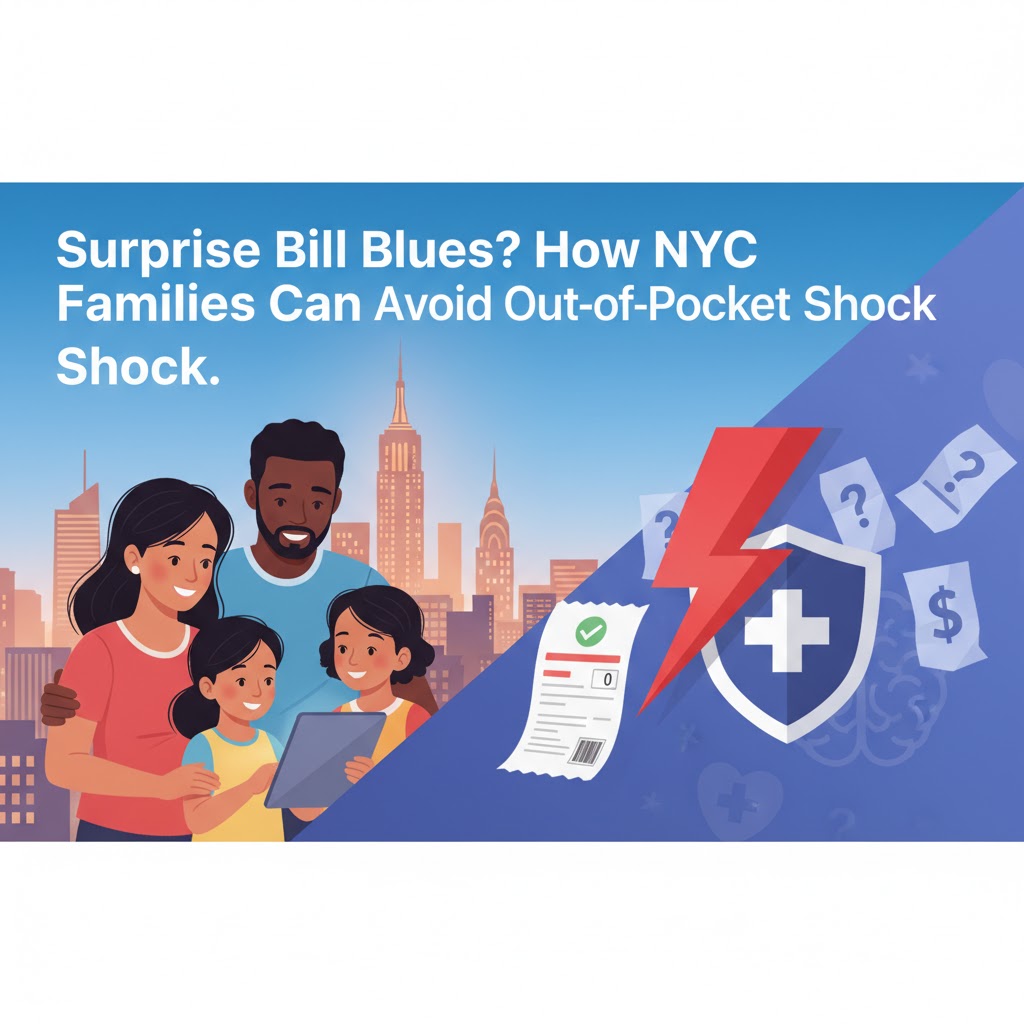Table of Content
1.Introduction: The Envelope Nobody Wanted
2.Why Surprise Bills Still Happen
3.The Ripple Effect on Families
4.The Moment Families Learn the Hard Way
5.What Families Can Do Differently
6.Where SecureSafer Fits In
Introduction: The Envelope Nobody Wanted
On a rainy afternoon in the Bronx, Teresa opened her mailbox and found a thick envelope. She assumed it was just another statement. Instead, it was a bill — $2,400 for an ambulance ride after her mother’s fall. She sat at the kitchen table in shock, whispering, “But we have insurance.”
This is what families across New York are facing: surprise bills that arrive without warning, often when people are already overwhelmed by a health crisis. They’re called “surprise” for a reason — they show up when you least expect them, and they sting when you’re least prepared.
Why Surprise Bills Still Happen
You’d think insurance would prevent this. But the reality is more complicated. An emergency room visit may be at a hospital in-network, but the anesthesiologist who treated you could be out-of-network. A test might be ordered by your doctor but processed at a lab your plan doesn’t cover.
ADVERTISEMENT
In New York, despite state and federal protections, gaps remain. The No Surprises Act helps limit some costs, but families still find themselves navigating gray areas — especially when urgent care or specialty providers are involved. For someone already balancing rent, groceries, and childcare, a surprise bill can feel like the final straw.
The Ripple Effect on Families
These bills don’t just drain bank accounts. They cause stress that spreads through households. Parents skip their own care out of fear of new charges. Seniors feel guilty for “being a burden.” Kids sense the tension when money arguments replace family dinners.
It’s not just about dollars. It’s about trust — the trust families place in insurance, in hospitals, in the idea that “coverage” should mean protection. When that trust breaks, families lose more than money. They lose peace of mind.
The Moment Families Learn the Hard Way
Ask any New Yorker who’s been through it, and they’ll tell you the same thing: the hardest part isn’t paying. It’s realizing the rules weren’t clear in the first place.
One Queens family thought their child’s outpatient surgery was fully covered. The surgeon was in-network, but the anesthesiologist wasn’t. The bill: $3,800. A Brooklyn senior was told a rehab facility was “covered,” only to discover the length of stay exceeded what Medicare would pay. The bill: another $6,000.
These aren’t rare stories. They’re everyday realities.
What Families Can Do Differently
The best protection isn’t about being perfect. It’s about being proactive. Before a procedure, families who ask, “Is every provider in-network?” are more likely to avoid shock. Calling insurance companies to double-check may feel tedious, but it’s often the step that saves thousands.
Some New Yorkers also use patient advocates or nonprofit helplines that specialize in billing questions. And when bills do arrive, families have the right to dispute errors, request itemized statements, and appeal unfair charges.
ADVERTISEMENT
But here’s the truth: most families don’t know these rights until after the damage is done.
Where SecureSafer Fits In
At SecureSafer, we believe families shouldn’t have to learn lessons the hard way. That’s why we walk through real-life scenarios with our clients. If a parent is scheduled for surgery, we ask: who else will be in the room? If a senior is discharged from the hospital, we ask: how long does coverage really last?
We connect families with resources, explain the rights they may not realize they have, and guide them through appeals when unfair bills show up. For immigrant families, we break it down in Bangla, Spanish, or whichever language makes it clear. Because confusion should never be the reason a family pays more than they should.
If you’ve ever felt blindsided by a medical bill, you’re not alone — but you don’t have to face it unprepared again.
📞 Visit SecureSafer.com to learn how to protect your family from out-of-pocket shock before the next envelope arrives.
Compliance Note
This article is for educational purposes only. SecureSafer does not guarantee insurance approvals, savings, or bill outcomes. For official guidance, visit Medicare.gov, DFS, or NY State Health.
| Need Help Now? Don’t Wait. ✅ Call our SecureSafer team directly at SecureSafer.com or call (646) 444-2020 ✅ Request a policy review or switch evaluation today. |
ADVERTISEMENT

